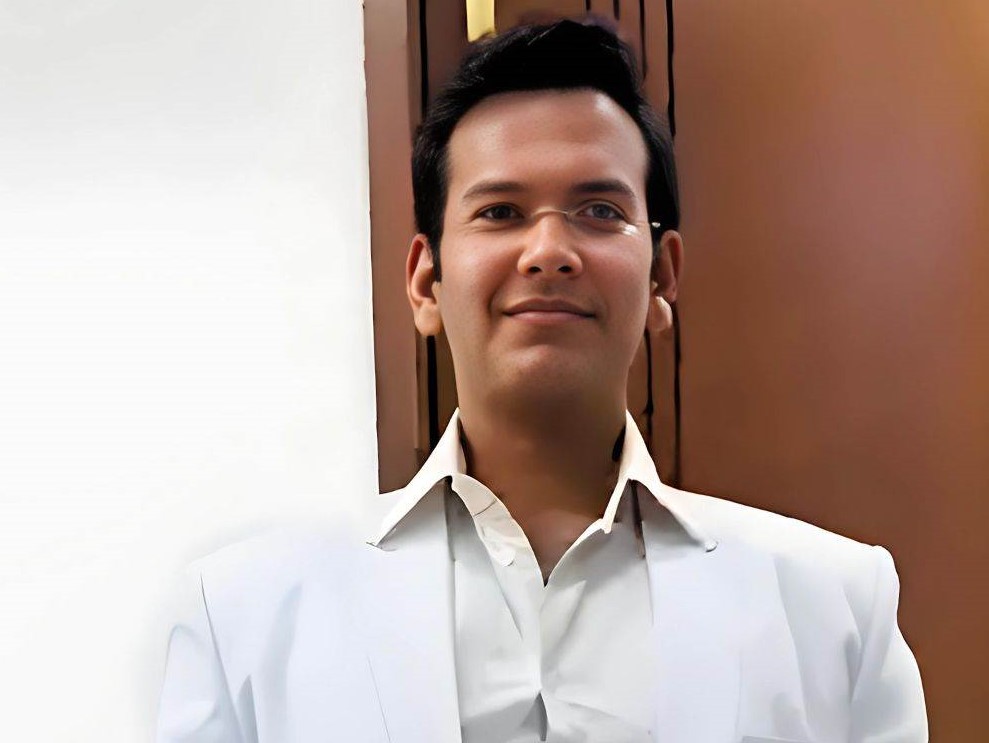Looking to the future of wearable devices, today TechGraph’s editorial team spoke with Udit Agarwal, CEO of Boston Levin to discuss how advanced sensors, enhanced connectivity, and wellness-focused features are transforming the wearable tech landscape, and how Boston Levin capitalizing on these opportunities by investing in R&D and strategic partnerships to meet the evolving needs of consumers.
Read the complete interview:
TechGraph: With the wearable technology market becoming increasingly saturated, how does Boston Levin differentiate its products in terms of both technological innovation and user experience to maintain a competitive edge?
Udit Agarwal: Boston Levin sets itself apart in the wearable technology market by prioritizing both technological innovation and user experience.
We continuously explore emerging technologies to ensure our products remain at the forefront of innovation. Additionally, we focus on providing exceptional user experiences through intuitive interfaces, ergonomic designs, and seamless integration into users’ lifestyles.
TechGraph: Wearable technology often faces criticism for its limitations in battery life and processing power. How is Boston Levin addressing these technical challenges to enhance the performance and longevity of its smartwatches and true wireless music devices?
Udit Agarwal: Addressing the limitations of battery life and processing power is a top priority for Boston Levin. Through extensive research and development efforts, we optimize power consumption and improve processing efficiency in our smartwatches and audio technology like our recent Levin Storm Airmax True Wireless Stereo (TWS) Earbuds. This results in longer battery life and enhanced performance, providing users with a seamless and reliable experience.
TechGraph: Consumer privacy and data security are growing concerns, especially with wearable devices collecting sensitive health and activity data. How does Boston Levin ensure robust privacy measures are in place to protect users’ information while still providing personalized experiences?
Udit Agarwal: Consumer privacy and data security are fundamental principles for Boston Levin. We implement robust privacy measures to protect users’ sensitive information while still delivering personalized experiences. Our systems adhere to the highest standards of data security, ensuring that user data is handled with the utmost care and transparency.
TechGraph: Wearable technology often faces skepticism regarding its actual impact on consumers’ lives beyond mere convenience. How does Boston Levin measure and communicate the tangible benefits and long-term value proposition of its products to consumers?
Udit Agarwal: To address skepticism about the impact of wearable technology, Boston Levin focuses on measuring and communicating tangible benefits to consumers.
Through user testimonials, case studies, and data-driven analyses, we demonstrate how our products enhance users’ lives beyond mere convenience, emphasizing the long-term value proposition they offer.
TechGraph: The wearables market is seeing a shift towards more health and wellness-focused features. How is Boston Levin innovating in this space to offer advanced health-tracking capabilities while maintaining user trust and compliance with regulatory standards?
Udit Agarwal: In response to the growing demand for health and wellness-focused features, Boston Levin innovates by offering advanced health-tracking capabilities while prioritizing user trust and compliance with regulatory standards.
Our devices provide accurate health insights while adhering to strict privacy and regulatory requirements, ensuring users can confidently rely on our products for their health needs.
For instance, our smartwatch, The Boston Levin Infinity, can monitor your heart rate, sleep, blood oxygen level, steps, and blood pressure.
This comprehensive suite of health tracking features empowers users to proactively manage their well-being, enhancing the overall user experience and promoting healthier lifestyles.
TechGraph: With the rise of artificial intelligence and machine learning, how is Boston Levin leveraging these technologies to enhance the intelligence and adaptability of its wearable devices, particularly in areas like predictive analytics and personalized recommendations?
Udit Agarwal: Leveraging artificial intelligence and machine learning, Boston Levin enhances the intelligence and adaptability of its wearable devices.
By incorporating predictive analytics and personalized recommendations, we deliver tailored experiences that anticipate users’ needs and preferences, enhancing the overall user experience.
TechGraph: Consumer expectations for design and aesthetics are continually evolving. How does Boston Levin balance the need for cutting-edge technology with timeless design principles to create products that resonate with a broad spectrum of consumers?
Udit Agarwal: Boston Levin balances cutting-edge technology with timeless design principles to create products that resonate with a broad spectrum of consumers. We prioritize sleek and stylish designs that appeal to users’ aesthetic preferences, without compromising on functionality or performance.
TechGraph: With the increasing convergence of wearable devices with IoT and connected ecosystems, what role does Boston Levin see its products playing in the broader context of smart homes, smart cities, and the Internet of Things?
Udit Agarwal: As wearable devices converge with IoT and connected ecosystems, Boston Levin sees its products playing a crucial role in smart homes, smart cities, and the Internet of Things.
Our goal is to seamlessly integrate our devices into these ecosystems, providing users with a seamless and interconnected experience that enhances their daily lives.
TechGraph: As the regulatory landscape for wearable technology evolves, particularly concerning health and safety standards, how does Boston Levin stay ahead of compliance requirements and ensure its products meet or exceed regulatory expectations?
Udit Agarwal: Staying ahead of compliance requirements is essential for Boston Levin. We closely monitor regulatory developments, particularly concerning health and safety standards for wearable technology.
Through proactive measures and rigorous testing procedures, we ensure that our products meet or exceed regulatory expectations, prioritizing the safety and well-being of our users.
TechGraph: Looking ahead, what emerging technologies or trends do you believe will have the greatest impact on the future of wearable technology, and how is the company preparing to capitalize on these opportunities?
Udit Agarwal: Looking ahead, Boston Levin anticipates that emerging technologies such as advanced sensors, augmented reality, and enhanced connectivity will have a significant impact on the future of wearable technology.
We are actively preparing to capitalize on these opportunities by investing in research and development, forging strategic partnerships, and staying agile to adapt to evolving consumer needs and technological advancements.




